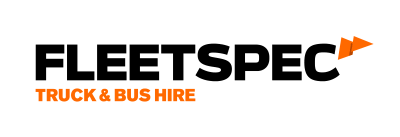Australians and people around the world are starting to cut down their ownership of fossil fuel-based cars with the presence of electric vehicles (EV) arriving much sooner expected according to the International Energy Agency (IEA). Often thought of as something to come in the future, studies are showing the perception around the transition to electric vehicles has already moved rapidly from once being considered optimistic or futuristic to now becoming a very clear reality. This change is expected to impact strategies and plans for miners, processors and suppliers of minerals, such as cobalt, graphite and lithium – minerals which are regarded as having shortages around the world. Australian mining is being turned on its head – with former by-products now in hot demand.
While the historic entry barriers to electric vehicle purchasing still exist – high purchase costs, limited driving range and limited charging infrastructure, the barriers are rapidly coming down with more and more consumers looking at electric vehicle options. Governments around the world are also setting targets on electrical vehicle transitions, as the growing demand for electric vehicles to help cut transport emissions. All these factors are now leading to new era of mining, and with that a suite of challenges when available resources are scarce. Electric vehicles require a complex mix of metals, many of which have only been previously mined in small amounts. Cobalt, nickel and lithium are required for batteries used for electric vehicles and storage and rare earth metals for permanent magnets in electric vehicles. To find mine sites that are pure cobalt is very difficult, probably less than two per cent fall into that category, the rest link onto a nickel or copper project. That will impact on price until cobalt’s economics on both the supply and demand side reach maturity. Cobalt prices have increased several hundred per cent in recent years, and there are predictions of a continued increase. Australia is already a large supplier of lithium, with most of this being exported unprocessed to China, however this may change with the expansion of the industry. Tesla’s Global Supply Manager for battery metals, warned at a conference in early May that after years of underinvestment in the mining industry, materials used to make the batteries that power electric vehicles could rapidly be in short supply. However, large potential profits await those that can tap into this ever expanding market. It is estimated that the global lithium-ion battery market at $30bn in 2015, rising to more than $75bn by 2024. Analysts expect global car sales to rise by 50% by 2050 to more than 130m units a year, and estimates that electric vehicles will account for at least 47% of that total. Australia is emerging as a strategic new supplier of cobalt and lithium given its reputation as a world-class mining and investment jurisdiction as well as its proximity to high volume battery manufacturers in South Korea, Japan and China.
Which are some of the companies leading the charge to supply the electrical vehicle market?
Rio Tinto
Rio Tinto is strengthening a commitment to become a key supplier of materials for battery and electric technologies at the Jadar lithium project in Serbia and at its copper ventures around the world.
Wesfarmers
Wesfarmers is currently offering $776 million for Kidman and would spend another $600 million funding its share of another new WA mine and downstream processing venture seen to be capturing global demand for battery-grade lithium from electric car makers. Wesfarmers also disclosed a $1.5 billion takeover offer for Lynas Corp, whose rare earths concentrates are also used in electric vehicle batteries.
BMW
BMW announced Australia and Morocco as new sources of cobalt for its electric vehicles. Australia has the second largest reserves of cobalt (second to the Congo). With significant issues faced by companies in the Congo, there is possibility of much more Cobalt operations to take place in Australia.?
Australian Mines Ltd’s
The Sconi Cobalt-Nickel-Scandium Project in Queensland has been forecast to be one of the most competitive cobalt-producing nickel operations in the world by an independent nickel and cobalt sulphate market study commissioned by the company.
Fleetspec Hire has heavy involvement in the mining sector. Our well-maintained, specialised fleet ranging from water tankers, tippers, cranes, fuel and service trucks, are on standby, ready to be mobilised for short-term or long-term use. There are strict compliance guidelines which need to be adhered to and we are well equipped and experienced to get your project going. Contact us today to see how we can support your latest project.



